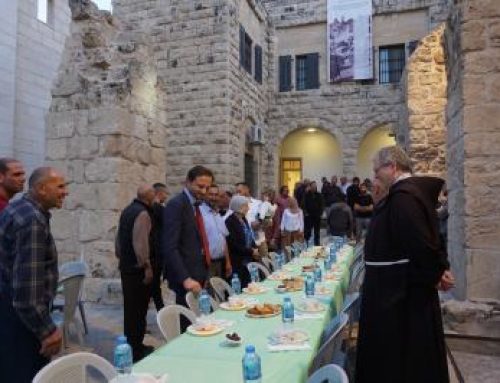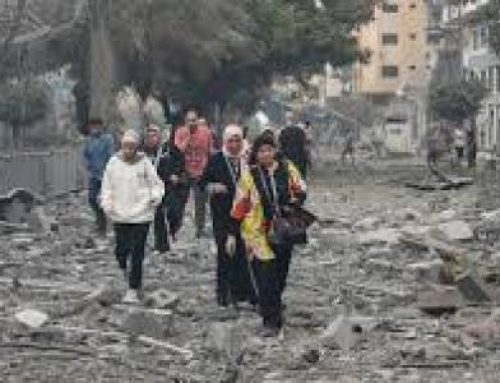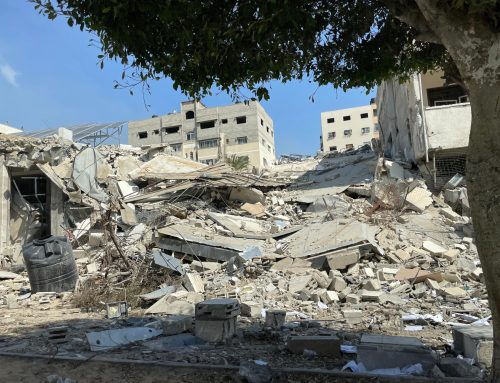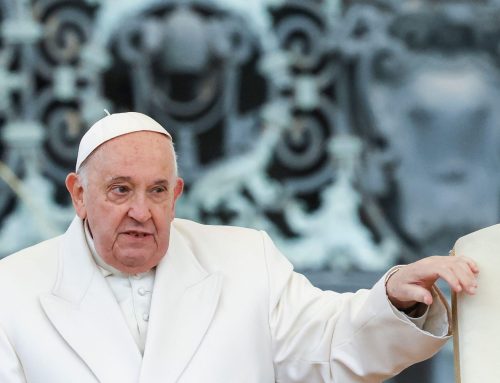By: Dr. Marc Gopin, Director of CRDC
Much is being made of Palestinian unilateralism recently, and President Obama and his advisors seem authentically perturbed by the unilateral march to Palestinian statehood declarations at the United Nations come September. It will indeed put the United States in an awful position.
Is this Palestinian move such a bad thing, and it is a betrayal of that sacred cow of statecraft, verbal negotiations? I say no, it is rather Palestinian leaders finally intuiting what the true form of negotiations have been all along, the true positions being formulated by successive leaderships of Israel. That form of negotiation, the one that has marched forward year after year, is the creation of facts on the ground, actions not words.
I always knew that actions speak louder than words, but only of late have I come to realize that they are not only a form of negotiation but the form of negotiation in the Israeli/Palestinian conflict, and perhaps in many conflicts. After all, when I hit you, I am making a very clear negotiating position, ‘I have the right to hit you and will continue to do so until you submit.’ When I take land I am saying, ‘I have a right to take this land and you have no rights to it.’ When I kill your children, Arab or Jewish, I am saying, ‘I despise your existence and I want you to go away.’
The Israeli Right has been making very clear statements through its actions for decades. So has the Arab Right through terrorism. What has made the ‘peace camp’ in both Israel and Palestine so feckless is their reliance on elite and secret negotiations as their ‘voice’, a voice that is in ill-repute with the masses. Frankly, it lacks the thunderous power of other ‘negotiating positions’, such as land theft or suicide bombs, which are much louder and bolder statements. Moderates on both sides have lacked a true voice of negotiating strength for their positions.
Perhaps the Palestinian Authority is pioneering a new way to make bold statements of moderation through actions, through actions with strong international legal implications. Palestinians always had the advantage in the international court of legal opinion, due to the creation of only one state in 1948, Israel, whereas two were intended all along. But all their leaders and advocates did for decades was to helplessly repeat numbers that numbed the brain with their repetitive ineffectuality, 242, 194. Just words, no action. Ah, but what if the United Nations and international bodies and alliances become, not a vehicle for words of toothless complaint but, a place of creation, a place of creating reality? Then actions become negotiations, and negotiated positions demand a real response to a serious adversary.
Hard line Zionists, perhaps for the first time, must face an adversary that may be besting them with facts on the ground. These new Palestinian leaders have not only created good economic governance facts on the ground, verified by the international community, but also political facts and realities on the ground that edge Israel closer to the nightmare international status of pariah. Now that is a fact on the ground worthy of negotiation that may even bring hard line Zionists like Netanyahu to a real table of negotiation for two states.
The goal of peace talks is not talk but peace, safety, a just social order. Then why are we so wedded to dialogue and negotiation in peacemaking? Two reasons, neither of which have ever satisfied me: 1. When people stop talking to each other it often means that violence is coming. We want talking to happen as a reassuring sign that violence is not around the corner.
Often it is not that we want to talk, but rather someone should be talking. Busy with our lives, we say in 1962, ‘Someone must be talking to the Soviet Union so that there is no nuclear Armageddon’. We say, ‘Someone must be knocking sense into the crazy North Korean regime so that they stop their apocalyptic threats. Oh, a great ambassador I know, former Dean of Fletcher is on the case. Thank God!’ But this reliance on negotiations by others to give us the illusion of stability is really childish messianism.
We want someone else to take care of us, but peace never comes with this kind of evasion of citizen responsibility, particularly in the Arab/Jewish conflict. After 28 years in this work I feel quite confident in saying what is trite but true, there is no peace without people, one relationship at a time, one apology at a time, one act of justice and solidarity and sympathy at a time, from all sides. And yet we cling to talk negotiations by elites.
This is due to reason 2: governments tell us to trust negotiations. They say, ‘Quiet, be still, shhhh!, we are talking! No worries, we will take care of you, and don’t interfere. You know why we are better at talking than you? You don’t know all the facts. Our intelligence agencies (who for most of their existence systematically ignored ‘open source’ information, that is, the common sense that comes from actually talking to people, listening to the tapes they listen to) are telling us things you don’t know. So, shhhh!’ We moderates, busy with upwardly mobile careers and 2.5 children, dutifully go back to working our heads off, and we hope ‘they’ know what they are doing.
That is where we became complicit, at least in terms of the Arab/Jewish conflict that has killed thousands. We gave the floor to those who understand facts on the ground, hard line Zionists, Hamas, Hezbollah, CIA, all the Mukhabarats. The time has come as moderates to reclaim facts on the ground and thus to make negotiations real. We need to support the creation of nonviolent facts on the ground that are quite intimidating, so intimidating that they drive people to the negotiating table hungry for a deal. Then the politicians can sign the papers and take credit for peace in our time.
[/fusion_builder_column][/fusion_builder_row][/fusion_builder_container]




